Spring has arrived, and many of us are excited to get into the outdoor garden! But even though the winter is behind us, temperatures are still cool and the sun isn’t quite as warm as our plants need it to be. The good news is there are some simple, low-tech ways to help your garden take full advantage of the sunlight in cooler seasons. Without further ado, here’s our list of 5 Cool Ways to jumpstart your growing season!
Greenhouses, Cold Frames, and Row Covers
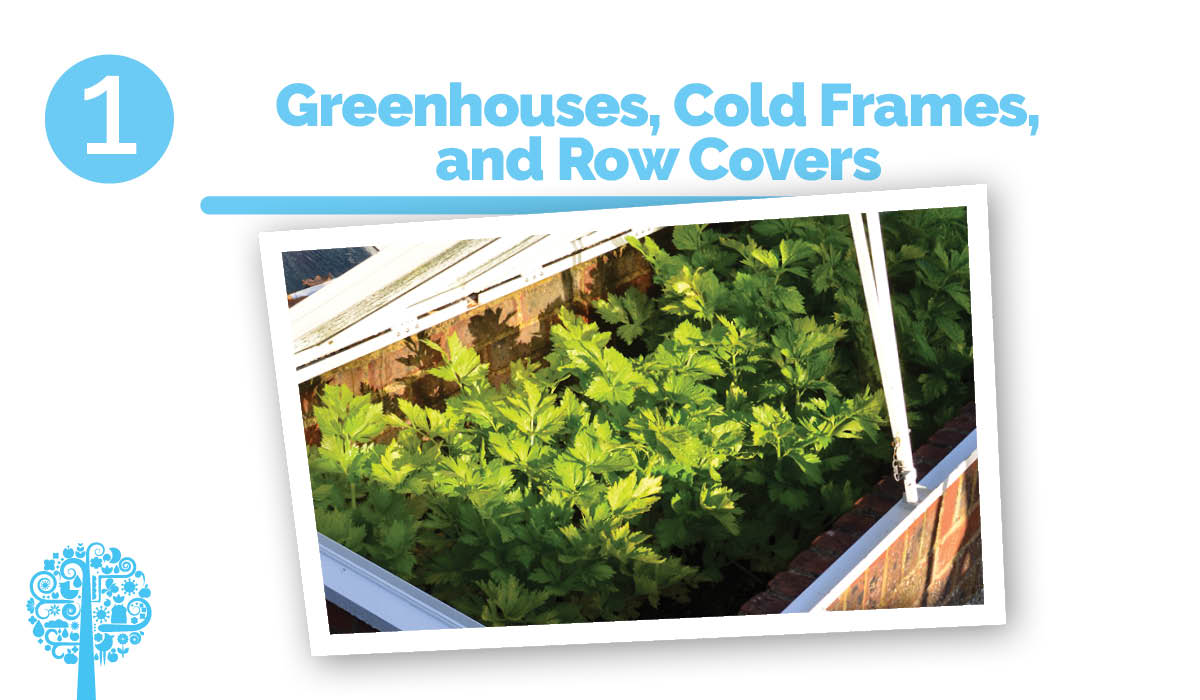
A personal greenhouse goes a long way in getting a headstart in the garden. With glass walls and ceilings, the free heat certainly gives plants the boost they need and allows for outdoor growing well before your region’s last frost date. At night, heating systems can help keep the greenhouse warm. Not in the market for such a large structure? Cold frames are a fantastic alternative and don’t take up too much real estate! These beauties are bottomless gardens with transparent tops (think repurposed windows) that take in the sun’s rays during the day and release that warmth throughout the night. Cold frames are inexpensive and easy to build; a quick online search will offer plenty of easy DIY guides. Finally, using transparent plastic or horticultural fleece, row covers will also help protect delicate crops from the cold, wind, and other nasty elements.
Create Microclimates
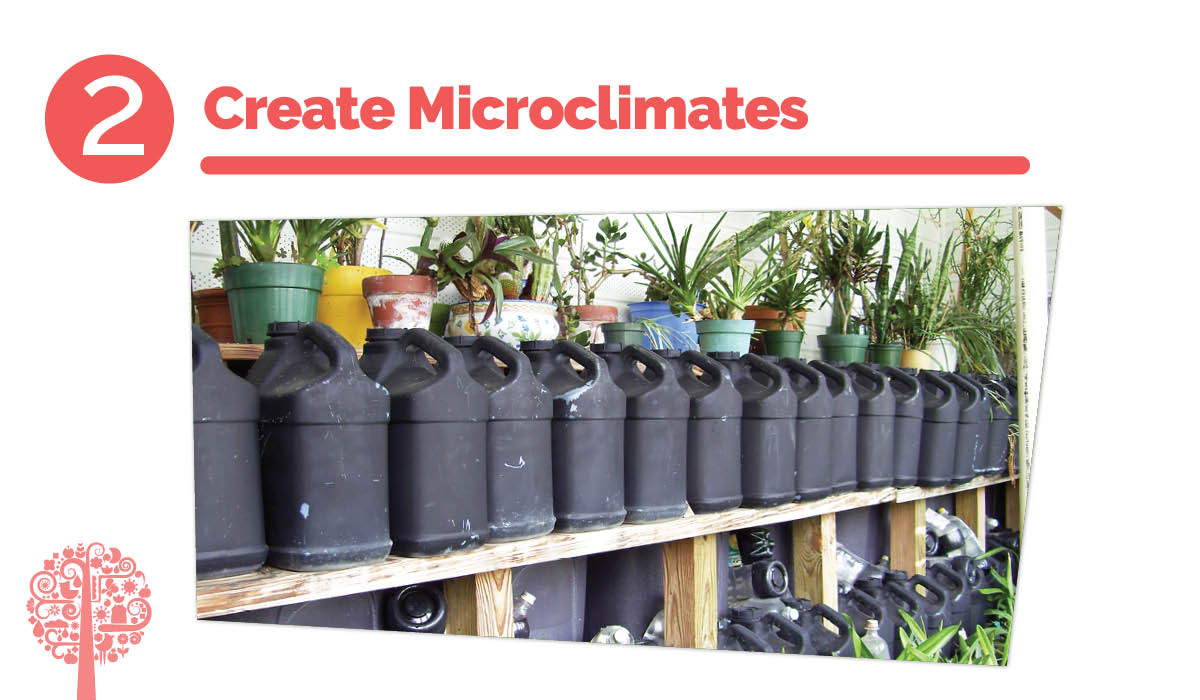
Want to trick your plants into thinking it’s warmer outside than it is? You can easily create microclimates to help extend your season, and it doesn’t have to cost a fortune, either! For example, filling plastic milk containers with water and placing them near your beloved crops creates a thermal mass. The jugs trap the heat from the sun during the day and release it at night when temperatures dip. The same goes for dark plastic sheeting, which attracts the sun and keeps the soil underneath nice and toasty. Not a fan of plastic lying around the yard? You’ll get the same result by planting crops near rock walls, which also trap the warmth from the sun while looking pretty too! Straw bales are also an excellent natural insulator; place them around your garden for a little extra heat and to protect plants against the elements. When the bales start breaking apart, they can work overtime by serving as mulch, which is essential to reducing water evaporation and soil erosion in the garden.
Cloches
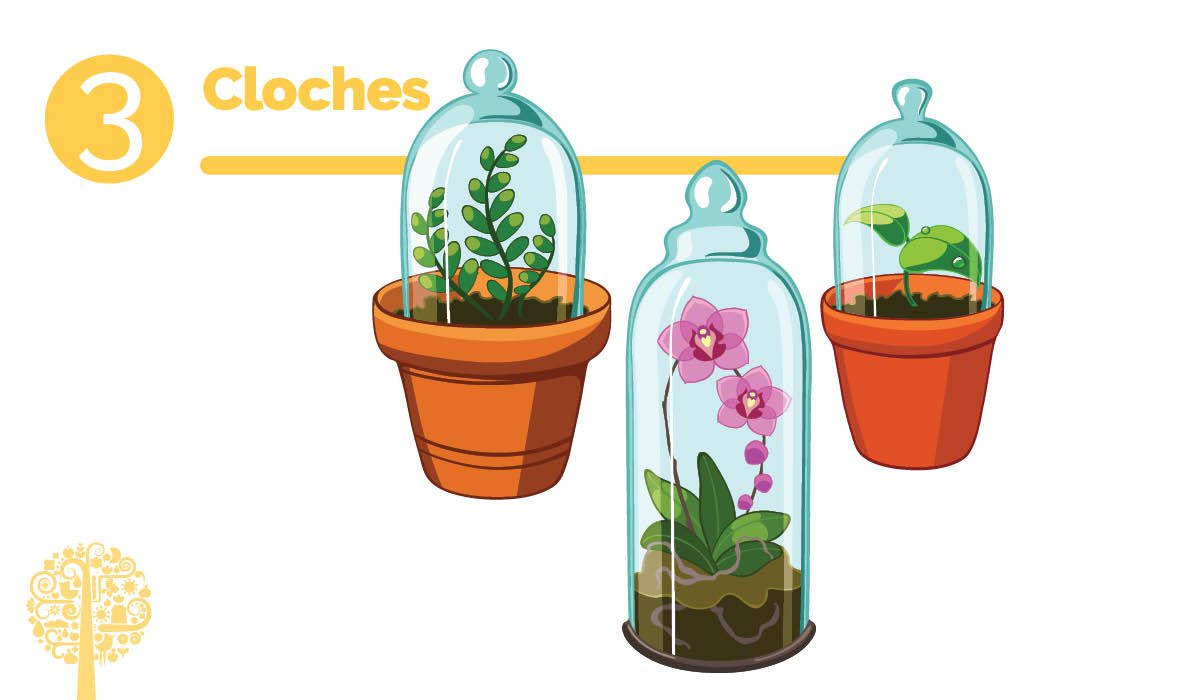
When it comes to crops like beets, broccoli, chard, and kale, you can get your growing groove on earlier than your season’s last frost date with the help of plastic or glass cloches. These cute little bell-like covers sit neatly overtop delicate plants in containers or on the ground. Much like row covers and cold frames, cloches absorb and trap heat from the sun and protect against spring frosts. However, they’re a little more versatile in the sense that you can quickly move cloches around to various spots of the garden throughout the growing season. You can purchase plastic cloches from a nursery or make them yourself using old water bottles. Be sure they have proper ventilation, as cloches tend to trap a lot of moisture, leading to powdery mildew problems.
Garden Heating Cables
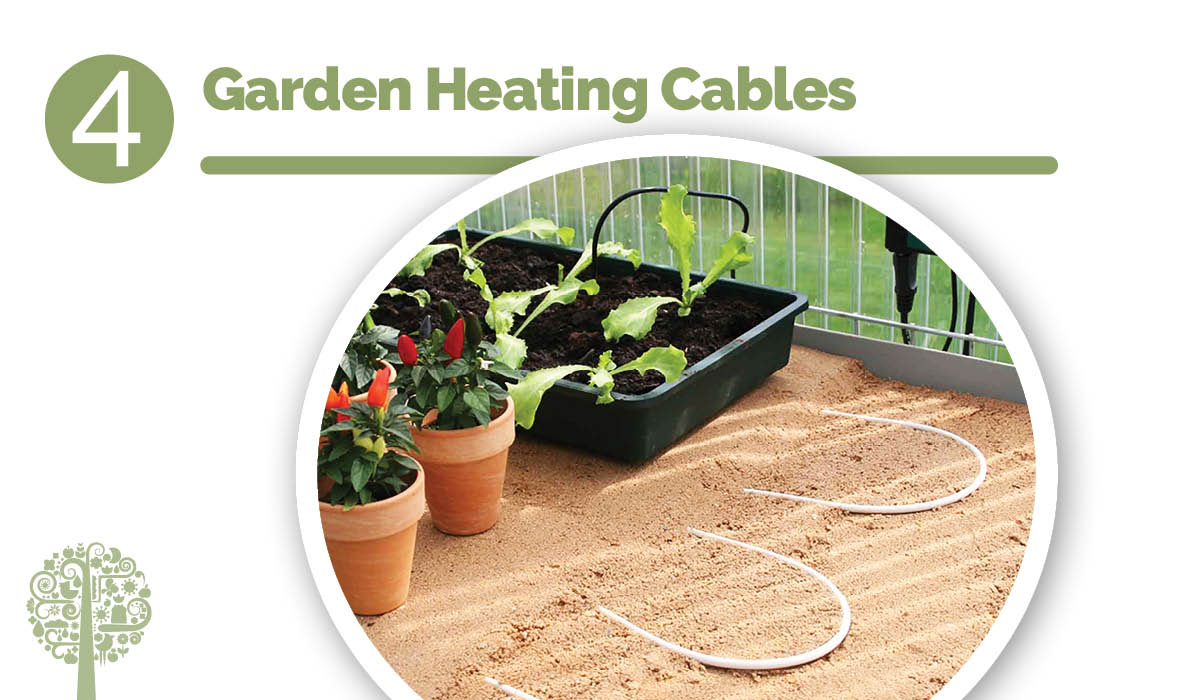
If you like clear sightlines and structures aren’t your thing, you can still help boost the soil’s warmth with garden heating cables. Heating cables come in different lengths and are insulated and plastic-coated so you can bury them without worrying about the cold and moisture. In addition, you can choose to use a thermostat so that the cables turn off on warm days and maintain the desired temperature when things cool down. Installing them is pretty easy; be sure to follow all safety guidelines, including having proper electrical outlets and even placing a wire mesh overtop the cables to protect them from garden shovels and spades. These babies will work even better if used with a hoop house, greenhouse, or cold frame.
Indoor Gardens
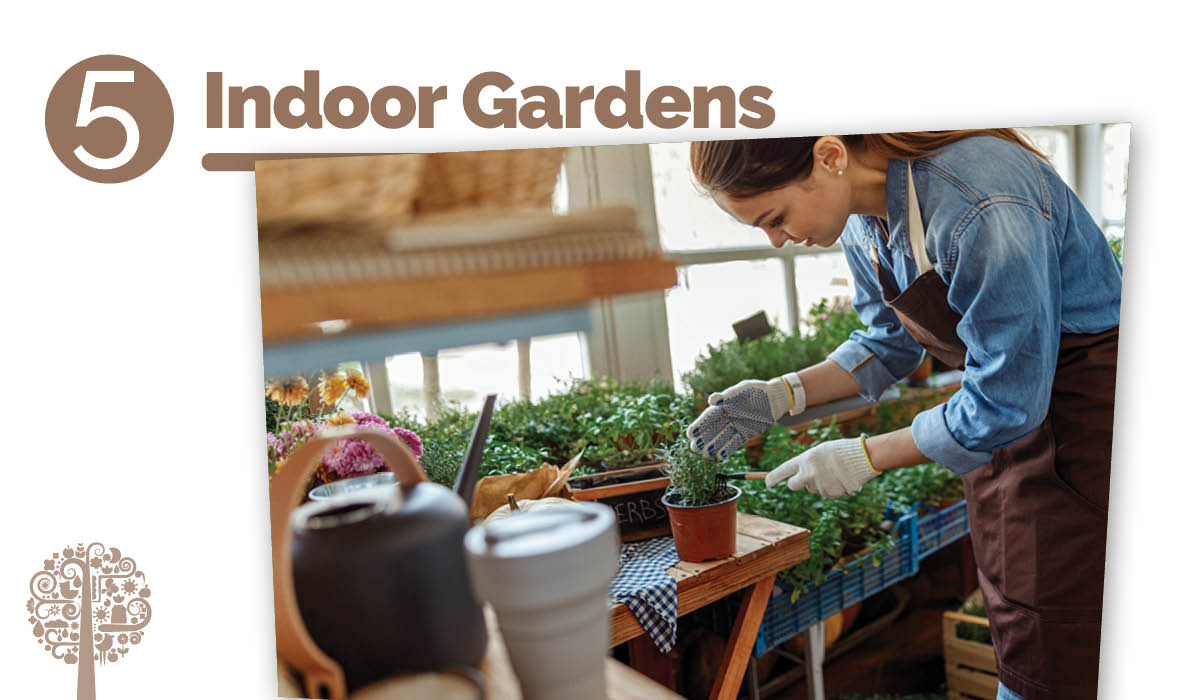
We’d be remiss if we didn’t really go back to the basics and mention indoor gardening as a great way to get growing outdoors sooner. This edition offers plenty of advice on doing exactly that; we hope you’ve gained a wealth of knowledge when it comes to lighting and ventilating your indoor space. But keep in mind that nothing has to be complicated; growing indoors can be as simple as purchasing some inexpensive grow lights, heat mats, and upcycling some old yogurt cups as seed starting pots. You have total control over your indoor garden and can jumpstart your outdoor growing season in the comfort of your home!
Source: